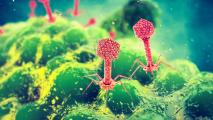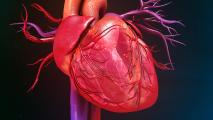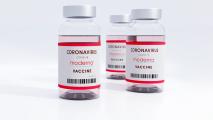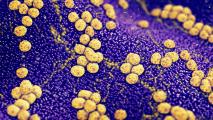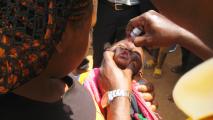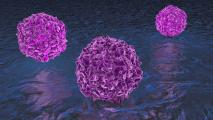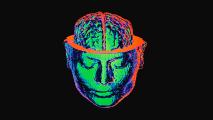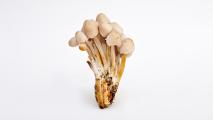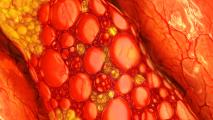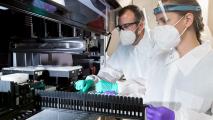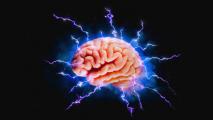
Biotech
Human history has been all but defined by death and disease, plague and pandemic. Advancements in 20th century medicine changed all of that. Now advancements in 21st century medicine promise to go even further. Could we bring about an end to disease? Reverse aging? Give hearing to the deaf and sight to the blind? The answer may be yes. And soon.
More
Bacteria’s self-destruct mechanism may unlock next-level genome editing
A mystery for 30 years, retrons are showing potential as genome-editing tools. Now, we know what they actually do.
The most detailed map of the human heart
A new map of the human heart details the function and location of 500,000 cells, providing a valuable tool for researchers studying cardiovascular disease.
Trial suggests Moderna’s coronavirus vaccine is 95% effective
Another win for mRNA vaccines: Moderna’s coronavirus vaccine appears to be 94.5% effective at preventing COVID-19, according to initial trial data.
New “universal” diagnostic test can ID any infection
UC San Francisco scientists have developed a new diagnostic test that uses DNA sequencing to quickly identify any pathogens in any type of patient sample.
A flu vaccine grown in tobacco plants just aced its clinical trials
Plant-based vaccines can be made cheaply and at scale. A tobacco plant-based vaccine for influenza has now been the first to complete clinical trials.
Finally! A smart toilet offers fecal testing for the masses
Fecal testing can reveal a surprising amount of medical data. Israeli startup OutSense wants to do so from your home.
Can a new polio vaccine help finish the virus off once and for all?
Thanks to polio vaccines and public health campaigns, polio is on the run — although COVID has it fighting back. Can a new vaccine help turn the tide again?
“Virus burritos” could be the key to vaccine preservation
Vaccine preservation is crucial to world health; the WHO estimates we waste 50% of vaccines a year. Vaccine burritos may provide some help.
Gene therapy shows promise as a glaucoma treatment
A new gene therapy was able to repair a damaged optic nerve in mice, suggesting it might be useful for treating glaucoma in people.
Is free will an illusion?
Philosophers have been making the claim that free will is an illusion for hundreds of years. What does modern neuroscience have to say about it?
Pfizer COVID-19 vaccine appears 95% effective (updated)
The Pfizer COVID-19 vaccine appears to be 95% effective at preventing coronavirus infections, according to an early analysis of a Phase 3 trial.
Psilocybin therapy appears to dramatically reduce depression
Psilocybin therapy — a combination of traditional therapy and supervised “trips” on the magic mushroom compound — shows promise as a depression treatment.
"Autoantibodies" may be causing COVID-19 blood clots
COVID-19 blood clots may be caused by autoantibodies, which attack the body’s own tissues and organs instead of intruders.
What’s going to happen with COVID-19 this winter?
There may be an increase in cases of COVID-19 this winter as people move indoors, but there are actions we can take to prevent it.
New nano drug may be able to break drug-resistant cancers — with fewer side effects
Drug-resistant cancers reduce the effectiveness of chemo. A team of researchers may have found a potential way to treat them.
German concert experiment suggests large indoor events can be safe
A German concert study has found that hygiene standards, mandatory masks, and ventilation may allow for indoor events.
Earwax gives doctors easy access to cortisol levels
The Trears device could make it easier for doctors to monitor cortisol levels by allowing patients to extract their own earwax samples for analysis.
Blood test for Alzheimer’s now available at doctors’ offices
For the first time, a blood test for Alzheimer’s disease has received approval to be used in doctors’ offices in the U.S.
Cough-analyzing AI detects asymptomatic COVID-19 infections
MIT has developed an AI that can detect asymptomatic COVID-19 infections from the sound of a person’s forced-cough with incredible accuracy.
Scientists test mind control with light — no surgery required
In a new breakthrough, scientists use optogenetics to manipulate brain cells in mice without surgery or brain implants.
Get inspired with the most innovative stories shaping the world around us.













